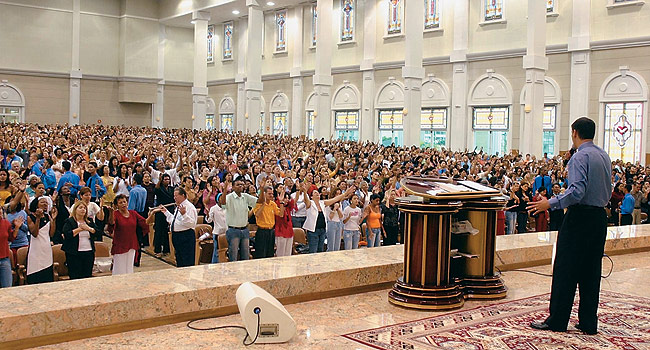Something about the Neopentecostal Movement in Brazil

Many people do not know about the gospel movement in Brazil. Most of the people that ask something about Brazilian usually ask about parties, forest, climate, beaches and so on. Only those who work with theology or religious studies ask about what kind of religion happens in here.
Brazil is a christian country. There is no doubt about that. Even though there are some different religions, they are minority and, as minority, many people, even brazilian, have no idea of their existence.
The gospel movement in Brazil is marked by pentecostalism and neopentecostalism. Of course there are some historical churches, such as, Lutherans, Methodist, Calvinist and so on, but unfortunately, the growth of neopentecostalism is something we must consider.
These neopentecostal churches, usually, are located in poor neighbourhood and, because of the Theology of prosperity, lots of people go to them in order to find solutions for their financial, health, love problems. Since desperated people do anything to get their problem solve, if the pastor says that he or she must give sort amount of money to prove his/her faith in order to receive the blessing, this person, who wants to feel him/herself free, will give the money, which of course is a fountain of profit for these churches.
This neopentecostal movement, joint with some pentecostal churches in Brazil were responsible for the result of the elections this year. Based on discurses against human rights, homossexuality (which is a huge tabu in these movements), against anyone who thinks differently from the extreme right wing, these churches and their leaders have convinced their flock to vote in the hard right wing candidate, who won the polls.
Brazilian theologians should consider the strenght of neopentecostal movement in convencing people to do what it wants. Because of that, Brazilian theologians should be able to talk not only with academics, but also with poor people, in a language that they understand. In order to avoid that Brazil becomes a fundamentalist country with “laws that comes from God”, as theologians we should talk with people and understand them.
By doing so, we will be able to teach them that the gospel is not about give and receive, but it is about sharing love and building a society in equality and justice, while we wait in hope for the new creation of all things.
